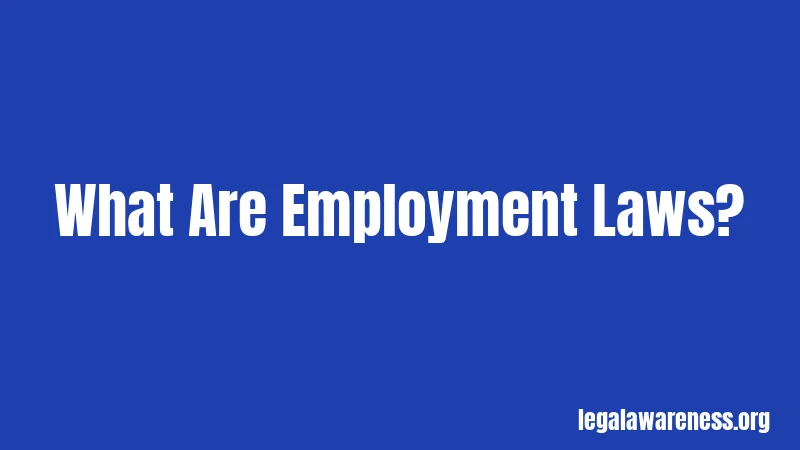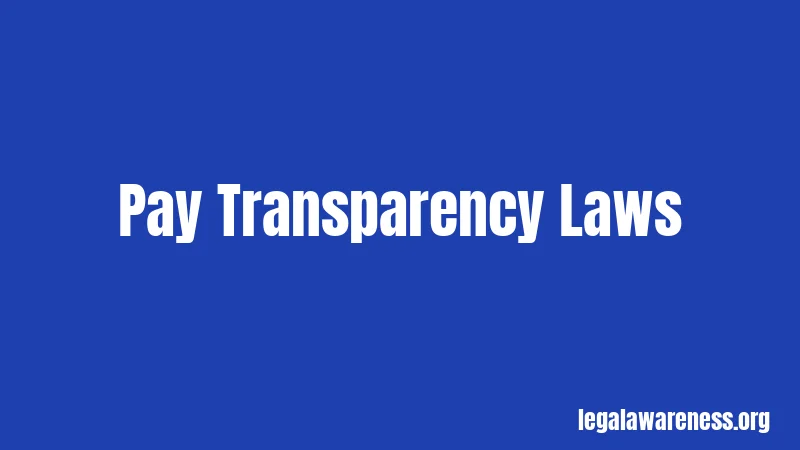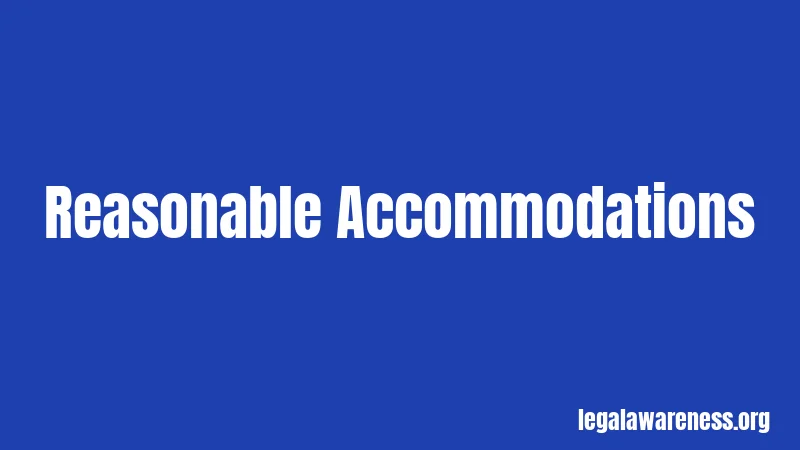Employment Laws in Massachusetts (2026): Your Complete Worker’s Rights Guide
Most people working in Massachusetts have no idea how strong their worker protections actually are. Seriously. The Bay State has some of the toughest employment laws in the country, and the penalties for violations can hit employers hard. Whether you’re an employee or an employer, understanding these rules can save you from major headaches. Let’s break down exactly what you need to know.
What Are Employment Laws?

Employment laws are rules that protect workers on the job. They cover everything from how much you get paid to what happens if you face discrimination. These laws also explain when you can take time off and how your employer must treat you.
Massachusetts goes further than federal law in many areas. The state adds extra protections for workers. That means even if federal law allows something, Massachusetts might not.
Minimum Wage and Pay Requirements
The minimum wage in Massachusetts is $15.00 per hour. This rate has been steady since January 2023. Right now, there are no scheduled increases for 2026.
This is way higher than the federal minimum of $7.25 per hour. If you work in Massachusetts, you get the higher state rate.
Tipped Workers
Here’s where it gets interesting. Tipped employees can be paid $6.75 per hour. But hold on. There’s a catch.
Your tips plus that base pay must equal at least $15.00 per hour. If your tips fall short, your employer must make up the difference. This is called “make-up pay” and it’s legally required.
Not sure if you’re getting enough? Do the math. Add up your hourly wages and tips. Divide by hours worked. If it’s under $15.00, your employer owes you money.
Overtime Pay
Work more than 40 hours in a week? You get overtime. The rate is 1.5 times your regular pay.
So if you normally make $20 per hour, overtime is $30 per hour. Pretty straightforward. Only those extra hours over 40 count for overtime.
Certain jobs are exempt from overtime. Managers, some administrative workers, and professionals may not qualify. The rules are specific about who’s exempt and who’s not.
When You Get Paid
Employers must pay you weekly or bi-weekly. Most companies choose one of these schedules. They can’t just pay you whenever they feel like it.
If you get fired, you get your final check that same day. If you quit, you get paid by the next regular payday. Final checks must include all earned wages and unused vacation time.
Missing these deadlines can land employers in serious trouble. Massachusetts doesn’t mess around with late payments.
Pay Transparency Laws

Starting October 29, 2025, bigger employers must show their cards. Companies with 25 or more employees in Massachusetts have new rules. They must include pay ranges in all job postings.
This applies to both internal and external job listings. When promoting or transferring current employees, employers must share the pay range. Job applicants can request this information too.
The goal? Promote fairness and reduce wage gaps. It’s harder to pay people differently for the same work when everyone sees the salary range upfront.
Discrimination Protections
Massachusetts Chapter 151B is a powerful law. It protects workers from discrimination in basically every aspect of employment. Hiring, firing, pay, promotions, job assignments – all covered.
Protected categories include:
Race, color, religious creed, national origin, ancestry, sex, gender identity, sexual orientation, genetic information, pregnancy, age (over 40), disability, and military service.
The law applies to employers with six or more employees. That’s lower than federal law. Smaller businesses in Massachusetts face tougher standards.
What Counts as Discrimination?
Refusing to hire someone based on their protected status is discrimination. Firing them for it is discrimination. Paying them less is discrimination. Denying promotions or giving worse assignments based on protected characteristics – all discrimination.
Retaliation is also illegal. If you complain about discrimination or help with an investigation, your employer can’t punish you. Firing, demoting, or harassing you for speaking up is against the law.
Sexual Harassment
Sexual harassment is a specific type of discrimination. It includes unwanted sexual advances, requests for sexual favors, or other verbal or physical conduct of a sexual nature.
All Massachusetts employers must have a written sexual harassment policy. They must give this policy to employees annually. New hires get it on day one.
The policy must explain what sexual harassment is, how to report it, and the complaint process. It must list the state and federal agencies employees can contact. Employers who skip this requirement face penalties.
Reasonable Accommodations

Employers must make reasonable accommodations for certain needs. This mainly applies to disability, pregnancy, and religious practices.
Disability Accommodations
If you have a disability, your employer must work with you. They need to make necessary adjustments so you can do your job. This might mean modified schedules, assistive technology, or changes to workplace policies.
The accommodation must be reasonable. It can’t cause undue hardship to the employer. What’s reasonable depends on the situation.
Pregnancy Accommodations
Pregnant workers get specific protections. Under the Massachusetts Pregnant Workers Fairness Act, employers must accommodate pregnancy-related needs. More frequent breaks, modified duties, and private lactation spaces are examples.
Wondering if you qualify? If you’re pregnant or recently gave birth, you probably do.
The Interactive Process
When you request an accommodation, your employer should talk with you. This is called the interactive process. It’s a back-and-forth conversation to figure out what you need and what works.
Both sides need to participate in good faith. Your employer can’t just ignore your request. You can’t demand something completely unreasonable either.
Paid Family and Medical Leave (PFML)
Massachusetts has one of the most generous paid leave programs in the country. The Paid Family and Medical Leave law lets you take paid time off for certain reasons. You can take up to 26 weeks of leave per year.
Who’s Covered?
Almost all Massachusetts workers are covered. Full-time and part-time employees qualify. Even some contractors are included.
If you work in Massachusetts, you’re probably eligible. Check with your employer if you’re not sure.
Qualifying Reasons
You can take leave for several reasons:
Your own serious health condition (up to 20 weeks), caring for a family member with a serious health condition (up to 12 weeks), bonding with a new child through birth, adoption, or foster placement (up to 12 weeks), managing family affairs during a family member’s military deployment, or caring for a service member with a serious injury (up to 26 weeks).
A serious health condition means something that prevents you from working for more than three consecutive days. It requires treatment by a healthcare provider.
How Much You Get Paid
Your weekly benefit depends on your average weekly wage. The formula is progressive. Lower earners get a higher percentage replaced.
For 2026, the maximum weekly benefit is $1,230.39. That’s up from $1,170.64 in 2025. The state average weekly wage is $1,922.48.
Most workers get between 50% and 80% of their average weekly wage. The exact amount varies based on your earnings.
How It’s Funded
Both employers and employees pay into the system. For 2026, the total contribution rate is 0.88% of eligible wages.
For employers with 25 or more employees, the cost is split. Employers pay 60% of the medical leave portion (0.42% of wages). Employees pay 40% of medical leave (0.28%) plus all of family leave (0.18%). That’s a total employee contribution of 0.46%.
For smaller employers (under 25 employees), employees pay the full 0.46%. Smaller employers can choose to contribute, but they’re not required to.
Contributions are capped at the Social Security wage limit. For 2026, that’s $184,500.
Breaks and Meal Periods
Massachusetts requires a 30-minute meal break. This applies if you work more than six hours. The break can be paid or unpaid, depending on your employer’s policy.
During this break, you must be completely free from work duties. You can leave the premises. Your employer can’t make you work through your break.
Some jobs are exempt from this rule. Certain factory work and other specific industries have different rules.
Massachusetts doesn’t require paid rest breaks. Unlike some states, employers don’t have to give you 10-minute breaks throughout the day. But many do anyway as a matter of policy.
Background Checks and Credit Reports
Employers in Massachusetts face strict limits on background checks. They can’t ask about your criminal history on initial job applications. This is sometimes called “ban the box.”
With your consent, employers can use the state’s iCORI criminal record database. They must have a legitimate business purpose. They also need to follow the Fair Credit Reporting Act.
As of January 1, 2025, employers can’t use credit reports for employment purposes. This new law aims to prevent discrimination based on credit history. There are narrow exceptions for certain financial positions.
At-Will Employment
Massachusetts is an at-will employment state. This means either you or your employer can end the employment relationship at any time. You can quit whenever you want. They can fire you whenever they want.
Wait, hold on. There are major exceptions to this rule.
Your employer can’t fire you for illegal reasons. Discrimination, retaliation, or violating public policy are all illegal. They can’t fire you for reporting illegal activity (whistleblowing). They can’t fire you for taking protected leave.
If you have an employment contract, that changes things too. The contract terms control over at-will employment.
Required Postings and Notices
Employers must display certain posters in the workplace. The Wage and Hour poster is required. It explains minimum wage rates and overtime rules.
The PFML poster must be displayed too. This poster explains paid family and medical leave benefits. It needs to be in a conspicuous location where employees can easily see it.
Posters must be in English and in any language that’s the primary language of five or more workers. The state provides translations in multiple languages. Employers are responsible for additional translations if needed.
Remote workers? Employers must make posters digitally accessible. Email them or post them on your company intranet.
Recordkeeping Requirements
Employers must keep accurate records. They need to track hours worked, wages paid, and deductions. Federal law requires keeping these records for at least three years.
Massachusetts has additional requirements. Employers must provide itemized wage statements. These show gross pay, deductions, and net pay for each pay period.
Failing to keep proper records can lead to audits and penalties. Honestly, this is one area where employers can’t afford to cut corners.
Wage Theft and Violations
Massachusetts takes wage theft seriously. If your employer doesn’t pay you properly, you have options.
You can file a complaint with the Attorney General’s Fair Labor Division. The process is straightforward. You can file online.
You can also sue in court. Massachusetts law allows for treble damages in wage cases. That means you could get three times what you’re owed. Plus attorney’s fees and costs.
The Wage Act is extremely employee-friendly. It even applies to some workers located outside Massachusetts if they work for a Massachusetts employer. Employers need to be very careful about wage and hour compliance.
Recent Changes for 2026
Several important updates took effect recently:
Pay transparency rules started October 29, 2025 for employers with 25+ employees. Credit report bans for employment began January 1, 2025. PFML maximum weekly benefits increased to $1,230.39 for 2026. New IRS tax rules for PFML medical leave benefits take effect January 1, 2026.
Employers need to update their practices. New posters and notices must be distributed.
Employee Classification
Classifying workers correctly is crucial. Employees and independent contractors have different rights. Misclassification can lead to massive penalties.
Employees generally get minimum wage, overtime, and benefits. Independent contractors don’t. The test for classification looks at multiple factors. How much control does the employer have? Is this the worker’s regular business? How integrated is the work into the company’s operations?
When in doubt, err on the side of employee classification. The penalties for misclassification are steep.
Non-Compete Agreements
Massachusetts has specific rules about non-compete agreements. They’re only enforceable under certain conditions. The agreement must be in writing and signed by both parties. The employee must get something of value (called “consideration”) in exchange.
Non-competes can’t be longer than 12 months for most employees. They must be reasonable in scope and geography. Courts won’t enforce overly broad non-competes.
Certain workers can’t be subject to non-competes at all. Non-exempt employees, students, workers under 18, and employees who were laid off are all protected.
Health Insurance Requirements
Employers with 50 or more full-time employees must offer health insurance. This is part of the federal Affordable Care Act. Massachusetts also has its own healthcare reform law.
All Massachusetts residents must have health insurance if affordable options are available. This individual mandate was in place before the federal one.
Employers need to provide information about health insurance options. They must tell employees about the Health Connector, the state’s insurance marketplace.
Workers’ Compensation
Employers must carry workers’ compensation insurance. This protects employees who get injured on the job. The insurance provides medical benefits and wage replacement.
If you’re injured at work, report it immediately. Your employer must file a claim with their insurance carrier. You should get medical treatment and wage replacement benefits.
You can’t be fired for filing a workers’ compensation claim. That’s illegal retaliation.
Unemployment Insurance
Employers pay unemployment insurance taxes. This funds benefits for workers who lose their jobs through no fault of their own.
If you get laid off or fired without cause, you can collect unemployment. You can’t collect if you quit without good reason or were fired for misconduct.
The process involves filing a claim with the Department of Unemployment Assistance. You must be actively seeking work to continue receiving benefits.
What to Do If Your Rights Are Violated
You’ve got options if your employer breaks the law. Don’t worry, Massachusetts gives workers strong tools to fight back.
First, try to resolve it internally if possible. Talk to HR or your supervisor. Document everything in writing.
If that doesn’t work, file a complaint with the appropriate agency. The Attorney General’s Office handles wage and hour violations. The Massachusetts Commission Against Discrimination (MCAD) handles discrimination complaints. The Department of Family and Medical Leave handles PFML issues.
You can also hire a lawyer and sue in court. Many employment lawyers work on contingency. That means they only get paid if you win.
Keep records of everything. Save emails, texts, pay stubs, and any written communications. These are crucial if you need to prove your case.
Frequently Asked Questions
What’s the minimum wage in Massachusetts for 2026?
The minimum wage is $15.00 per hour. Tipped workers get $6.75 per hour plus tips, which must total at least $15.00 per hour.
Do I qualify for paid family leave in Massachusetts?
Almost all Massachusetts workers qualify for PFML. If you work in the state, you’re probably covered. Check with your employer or visit the Department of Family and Medical Leave website to confirm.
Can my employer fire me for no reason?
Massachusetts is an at-will state, so technically yes. However, they can’t fire you for illegal reasons like discrimination, retaliation, or violating public policy. You’re also protected if you have an employment contract.
How much notice must my employer give before firing me?
Massachusetts doesn’t require advance notice for termination. However, your employer must pay you all earned wages on your last day if you’re fired. If you quit, they must pay you by the next regular payday.
Can I be forced to work overtime in Massachusetts?
Your employer can require overtime work in most cases. However, they must pay you 1.5 times your regular rate for hours over 40 per week. Some employees are exempt from overtime requirements.
What should I do if I’m not getting paid correctly?
Document the issue carefully. Calculate what you’re owed. Talk to your employer first. If that doesn’t work, file a complaint with the Attorney General’s Fair Labor Division or consult an employment lawyer. Massachusetts law allows for triple damages in wage cases.
Are meal breaks required in Massachusetts?
Yes. If you work more than six hours, you must get a 30-minute meal break. During this break, you must be completely free from work duties.
Can my employer ask about my criminal record?
Not on the initial job application. Massachusetts has “ban the box” rules. Employers can ask about criminal history later in the hiring process, with certain limitations.
What’s the difference between PFML and FMLA?
PFML is Massachusetts’ state paid leave program. FMLA is the federal unpaid leave law. PFML provides wage replacement benefits. FMLA only protects your job. You might qualify for both at the same time.
How do I file a discrimination complaint?
You can file with the Massachusetts Commission Against Discrimination (MCAD) or the federal Equal Employment Opportunity Commission (EEOC). You have 300 days from the discriminatory act to file. You can also sue directly in court.
Final Thoughts
Massachusetts employment laws are complex but powerful. They give workers strong protections. They also create clear obligations for employers.
The key is knowing your rights. Whether you’re an employee or an employer, staying informed keeps you protected. Laws change regularly, so check for updates at least once a year.
When in doubt, get help. Talk to a lawyer who specializes in employment law. File complaints with the appropriate agencies. Don’t let violations slide.
Now you know the basics. Stay informed, stay safe, and don’t hesitate to speak up if something doesn’t seem right.
References
- Massachusetts General Laws Chapter 151 – Minimum Fair Wage Law (https://malegislature.gov/Laws/GeneralLaws/PartI/TitleXXI/Chapter151)
- Massachusetts General Laws Chapter 151B – Unlawful Discrimination (https://malegislature.gov/Laws/GeneralLaws/PartI/TitleXXI/Chapter151B)
- Massachusetts Department of Family and Medical Leave – PFML Program (https://www.mass.gov/orgs/department-of-family-and-medical-leave)
- Massachusetts Attorney General – Wage and Hour Laws (https://www.mass.gov/minimum-wage-program)
- Massachusetts Commission Against Discrimination – Employment Discrimination (https://www.mass.gov/orgs/massachusetts-commission-against-discrimination)
